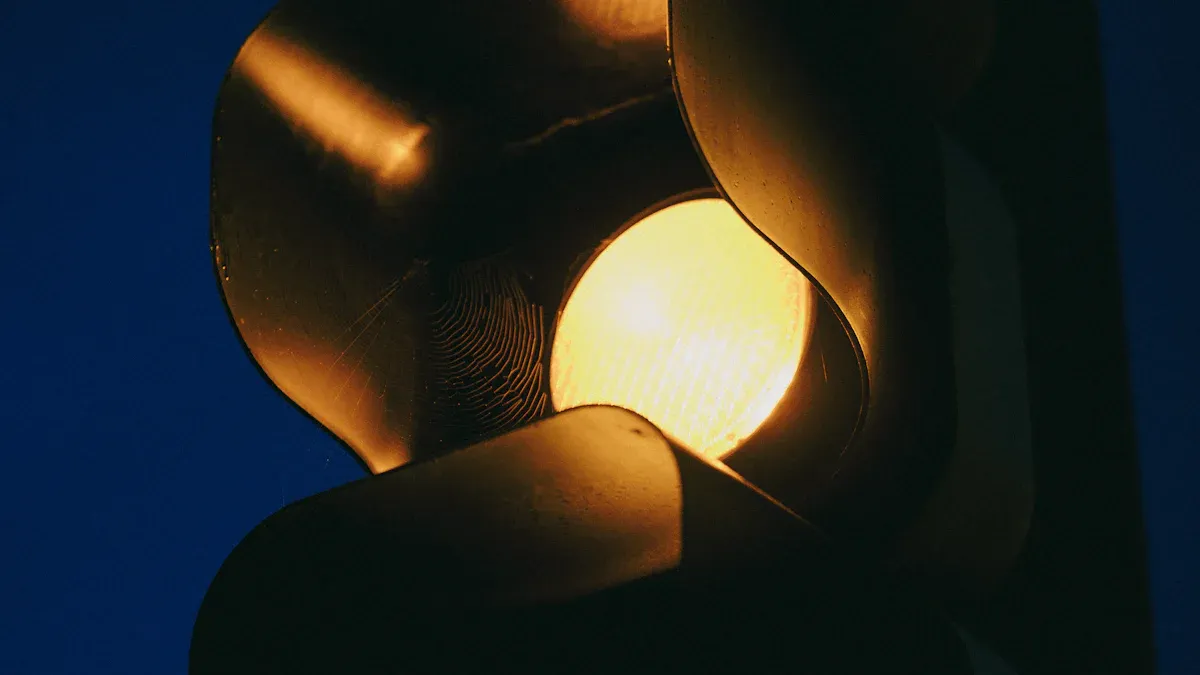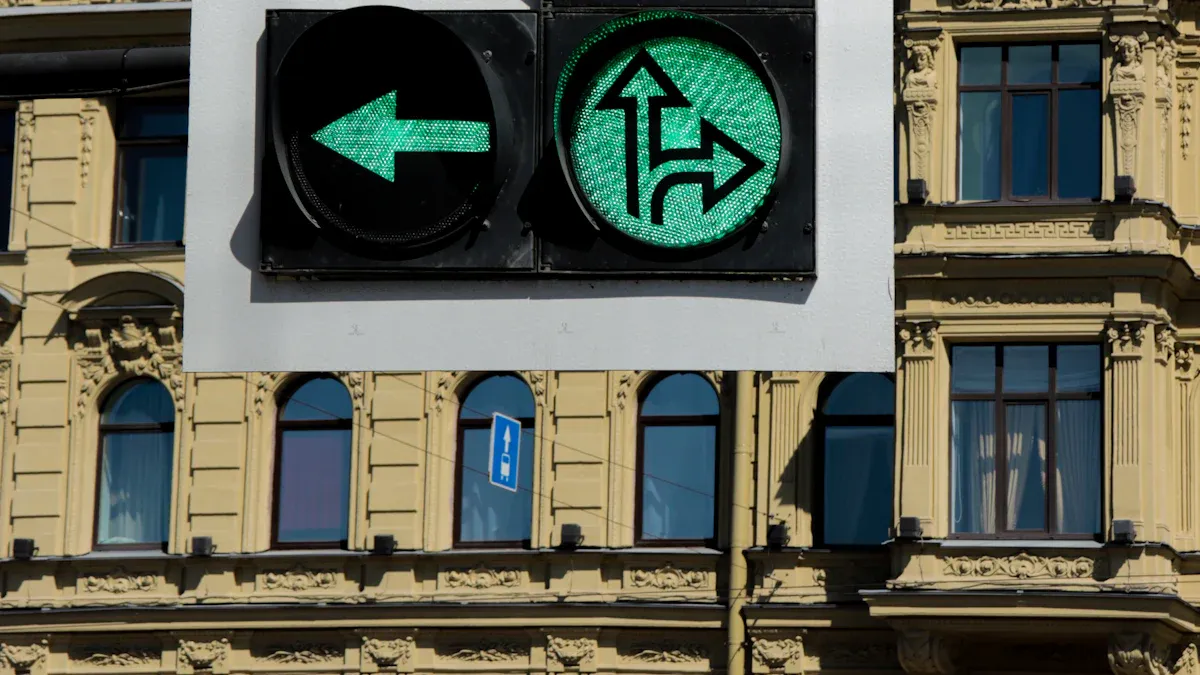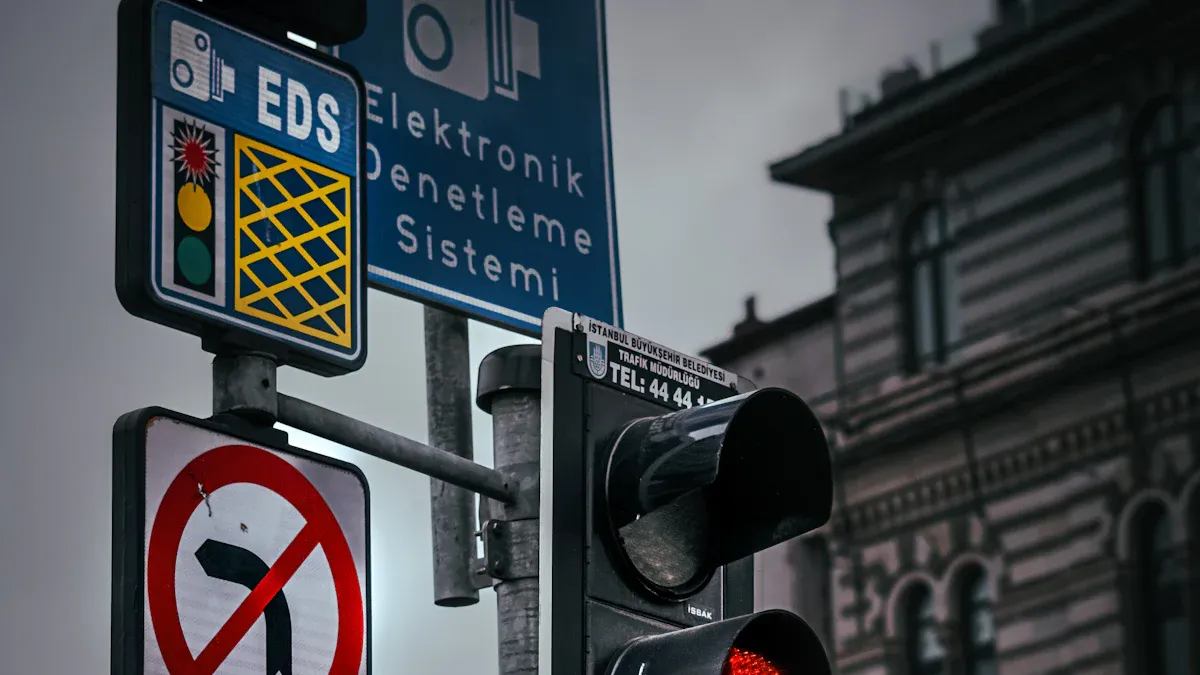What Are the Key Compliance Requirements for Importing Flashlights?

Understanding compliance is essential when importing flashlights, especially regarding the question, "What Are the Key Compliance Requirements for Importing Flashlights?" It ensures your products meet safety standards and avoid legal issues. Non-compliance can lead to shipment delays, fines, or even product recalls. Accurate documentation and customs procedures are critical for smooth operations. You must also follow market-specific labeling rules and adhere to U.S. Customs and Border Protection regulations. Importers who neglect these requirements risk penalties and reputational damage. By prioritizing compliance, you protect your business and ensure customer trust.
Key Takeaways
Following rules is important when importing flashlights. It avoids trouble and ensures products are safe to use.
Get BIS certification to show your flashlights are safe in India. This helps customers trust you and avoids fines.
Use global rules like UL and ISO to make sure your flashlights work well and are safe in different situations.
Keep correct paperwork and follow customs rules to avoid delays or fines. Good records prove you are following the rules.
Ignoring rules can cause big fines, legal problems, and hurt your business image. Focus on safety and good quality.
Certifications and Standards for Flashlights

Overview of Flashlight Quality Control Order (Flashlight QCO)
The Flashlight Quality Control Order (Flashlight QCO) ensures that all flashlights meet specific safety and quality standards. This regulation mandates compliance with IS 2083:2024, a recognized quality standard for flashlights. The Bureau of Indian Standards (BIS) enforces this order and requires flashlights to display a standard mark, indicating adherence to safety standards. Non-compliance can result in penalties under the BIS Act, 2016.
Key Component | Description |
|---|---|
Objective | Ensure all flashlights meet quality and safety standards, specifically IS 2083:2024. |
Compulsory Use of Standard Mark | Flashlights must carry a standard mark indicating compliance with safety standards. |
Certification and Enforcing Authority | Bureau of Indian Standards is responsible for certification and enforcement of the order. |
Penalty for Contravention | Penalties for non-compliance are outlined in the Bureau of Indian Standards Act, 2016. |
By following the flashlight QCO, you ensure your products meet the required safety standards and avoid legal issues.
BIS Certification and Its Role in Compliance
BIS certification plays a critical role in ensuring compliance with Indian standards for flashlights. This certification requires flashlights to conform to IS 2083:2024. The process involves rigorous testing to verify safety and performance. Flashlights must display the BIS ISI mark, which signifies compliance with safety standards.
Requirement | Details |
|---|---|
Compliance Standard | Indian Standard IS 2083:2024 |
Standard Mark | Required under license from BIS |
General Enterprises Timeline | 6 months from publication |
Small Enterprises Timeline | 9 months from publication |
Micro Enterprises Timeline | 12 months from publication |
Exemptions | Goods for export and limited R&D imports are exempt |
Penalties | Non-compliance leads to penalties under BIS Act, 2016 |
Obtaining BIS certification not only ensures compliance but also builds trust with consumers who value safety and quality.
International Standards for Flashlights
International standards for flashlights provide a framework for global compliance. These standards address safety, performance, and environmental responsibility. For example, UL certification ensures electrical and thermal safety, while ISO standards focus on quality management. ANSI/NEMA FL 1 sets benchmarks for runtime and beam distance.
Standard/Certification | Description |
|---|---|
UL Certification | Ensures safety and quality through rigorous testing for electrical and thermal safety requirements. |
ISO Standards | Framework for global compliance covering quality management and environmental responsibility. |
ANSI/NEMA FL 1 | Benchmark for electrical safety and performance, including measures like runtime and beam distance. |
ATEX Directive | Ensures compliance with safety requirements for intrinsically safe lighting. |
CE Marking | Signifies compliance with EU safety, health, and environmental standards. |
Navigating these standards alongside local requirements, such as the flashlight QCO, ensures your products meet both regional and global expectations.
Testing and Quality Assurance for Flashlights
Testing and quality assurance ensure that flashlights meet safety and performance expectations. You must verify that your products comply with the flashlight quality control order and adhere to global safety standards. Testing evaluates factors like durability, brightness, and battery life, ensuring your flashlights perform reliably in various conditions.
Key testing methods include compliance with IECEx standards for hazardous environments and NEC classifications for safe operation in flammable areas. These tests confirm that your flashlights can operate safely in challenging conditions. Additionally, certifications like ETL and UL Listing validate electrical and fire safety, while ANSI/NEMA FL1 standards assess performance metrics such as runtime and beam distance.
Factor | Why It Matters | What to Test |
|---|---|---|
Wavelength | Determines effectiveness for specific tasks. | Use fluorescent material to check UV light reaction. |
Power Output | Ensures adequate illumination. | Test brightness against known materials. |
Battery Life | Guarantees uninterrupted use. | Measure duration on a full charge. |
Build Quality | Confirms durability and resistance to damage. | Assess sturdiness, weight, and water resistance. |
Beam Focus & Spread | Allows versatility for different tasks. | Check adjustability for close and distant use. |
You should also test for dust and water resistance using IEC 60529 (IP Code) standards. This ensures your flashlights can withstand harsh environments. CE Marking confirms compliance with EU safety directives, which is essential for selling in European markets.
By prioritizing rigorous testing, you demonstrate a commitment to safety and quality. This approach not only satisfies the bureau of indian standards act but also builds trust with your customers. Reliable testing ensures your flashlights meet the quality control order and perform as expected.
Documentation and Procedural Requirements
Essential Import Documentation
When importing flashlights, you must prepare specific documentation to ensure compliance with import regulations. These documents verify the legality of your shipment and streamline the customs process. Missing or incorrect paperwork can lead to delays or penalties. Below is a table summarizing the essential documents required:
Requirement | Description |
|---|---|
Import Export Code (IEC) | Necessary for starting an import business in the U.S. |
Compliance with Foreign Trade Policy | Must adhere to the U.S. Government's regulations governing product imports. |
Additional Licenses/Certificates | Depending on the type of goods, additional documentation may be required. |
Proper documentation ensures your shipment meets all regulatory requirements and avoids unnecessary complications.
Customs Clearance and Tariff Classification
Navigating customs clearance can be challenging. You must comply with customs regulations to avoid shipment delays or penalties. Common challenges include incomplete documentation, inaccurate tariff classifications, and failure to meet labeling standards. For example, a shipment delayed due to incomplete paperwork may face a two-week hold at customs. Customs officials may also flag shipments if certificates of origin or tariff classifications are missing.
To prevent these issues, ensure your paperwork is complete and accurate. Familiarize yourself with the Harmonized System (HS) codes for flashlights. These codes determine the applicable tariffs and duties. Accurate classification not only speeds up customs clearance but also ensures compliance with import regulations.
Record-Keeping and Retention Requirements
Maintaining proper records is a critical part of compliance. You must retain all import-related documentation for a specified period, as required by law. These records include invoices, shipping documents, and certificates of origin. Proper record-keeping helps you address any disputes or audits that may arise.
Organized records also demonstrate your commitment to compliance. For instance, keeping detailed records of past shipments can help you identify patterns and improve future processes. Digital tools can simplify this task by storing and organizing your documentation efficiently. By prioritizing record-keeping, you ensure smooth operations and avoid penalties for non-compliance.
Regulatory Authorities and Enforcement

Key Regulatory Bodies Overseeing Flashlight Compliance
When importing flashlights, you must understand the role of regulatory bodies that enforce compliance. In India, the Bureau of Indian Standards (BIS) plays a central role. It ensures that flashlights meet the required safety and quality standards under the Flashlight Quality Control Order. BIS mandates the use of a standard mark on all compliant products. This mark signifies conformity with IS 2083:2024, the Indian standard for flashlights.
In addition to BIS, international regulatory bodies also influence flashlight imports. For example, the European Union requires CE marking to confirm conformity with safety and environmental directives. Similarly, the UL Listing in the United States ensures electrical and thermal safety. These certifications demonstrate that your flashlights meet global safety benchmarks.
Tip: Always verify the specific requirements of the destination market to avoid compliance issues.
Inspection and Compliance Checks
Regulatory authorities conduct inspections to ensure imported flashlights meet safety and quality standards. These inspections often include the following steps:
Measure beam distance and runtime.
Test waterproof and impact resistance.
Assess safety features like overheating protection and battery safeguards.
Pre-shipment inspections are crucial. They verify product specifications and ensure conformity with the standard mark requirements. During production, random sampling helps identify defects early. Final inspections evaluate the entire batch for quality and safety. Authorities may also supervise loading to prevent damage during transit.
To handle defective products, establish a clear returns policy. This approach ensures customer satisfaction and maintains your reputation.
Responsibilities of Importers and Distributors
As an importer, you bear significant responsibility for ensuring flashlight compliance. You must label products correctly, maintain proper documentation, and adhere to warehousing regulations. Regular inspections and audits of your operations help you stay compliant. Training your staff on regulatory updates ensures everyone understands their role in maintaining conformity.
Distributors also play a key role. They must verify supplier certifications, such as CE and RoHS, and conduct regular audits. Requesting certificates of compliance ensures adherence to industry standards. Look for ANSI/NEMA FL1 certification to confirm performance metrics like brightness and runtime. Staying updated on safety regulations helps you avoid penalties and protect your business.
Note: Both importers and distributors must collaborate to ensure flashlights meet the bureau of indian standards requirements and display the standard mark.
Exemptions and Special Cases
Exemptions for Personal Use of Flashlights
When importing flashlights for personal use, you may qualify for exemptions depending on the destination country. Many regulatory authorities allow small quantities of flashlights to bypass stringent compliance requirements. For instance, personal imports often do not require certifications like BIS or CE marking. However, you must ensure the flashlights meet basic safety standards to avoid confiscation during customs checks.
Always verify the specific rules of your target market. Some countries impose restrictions on flashlights with built-in batteries due to hazardous material regulations. Proper labeling and documentation, even for personal use, can help you avoid unnecessary delays or penalties.
Tip: If you're unsure about the rules, consult with customs officials or a compliance expert before importing flashlights for personal use.
Special Cases for Flashlight Components
Importing flashlight components requires careful attention to compliance. Components like batteries, LED modules, and casings may fall under separate regulations. For example, batteries often require special handling to comply with hazardous material guidelines. Familiarizing yourself with warehousing regulations and safety standards in your target market is essential to avoid penalties.
Choosing a supplier that adheres to compliance standards is equally important. Request certifications and conduct audits to ensure the components meet quality protocols. Key standards to consider include:
IEC 60079 for explosion protection in intrinsically safe flashlights.
ATEX directive for hazardous environments in Europe.
North American Class/Division system for location-specific safety requirements.
Proper labeling and documentation for each component streamline the importing process and protect your business from legal risks.
Temporary Importation Rules
Temporary importation of flashlights, such as for trade shows or testing purposes, often comes with relaxed regulations. Many countries allow temporary imports under a Carnet, which acts as a passport for goods. This document exempts you from paying duties or taxes, provided the flashlights are re-exported within a specified timeframe.
You must declare the purpose of the importation and ensure the flashlights remain in their original condition. Customs officials may inspect the goods upon entry and exit to confirm compliance. Temporary imports are an excellent option for businesses looking to test new markets without committing to full-scale importing operations.
Note: Always keep detailed records of temporary imports to avoid complications during re-exportation.
Penalties for Non-Compliance
Financial Penalties and Additional Costs
Non-compliance with flashlight import regulations can result in significant financial penalties. Authorities impose these penalties to ensure adherence to safety and quality standards. Violating the provisions of the Flashlight Quality Control Order (QCO) subjects you to penalties under the Bureau of Indian Standards Act, 2016.
Fines can escalate based on the severity of the violation.
Additional costs may include fees for re-inspection or re-certification.
Non-compliant shipments often face delays, leading to storage fees and increased operational expenses.
These financial burdens can strain your business and disrupt your supply chain. Ensuring compliance from the start helps you avoid these unnecessary costs.
Legal Consequences and Product Seizures
Failing to comply with import regulations exposes you to serious legal risks. Authorities may recall non-compliant flashlights, disrupting your operations and incurring significant costs. If a faulty flashlight causes harm, you could face liability lawsuits. These lawsuits not only result in hefty settlements but also damage your reputation.
Non-compliance with safety standards can lead to workplace safety violations.
Importers may face legal liabilities if defective products cause injuries.
Regulatory bodies have the authority to seize non-compliant shipments.
Legal consequences can escalate quickly, especially if safety violations are involved. By adhering to regulations, you protect your business from these risks.
Reputational Risks for Non-Compliant Importers
Ignoring compliance requirements can severely damage your reputation. Selling unreliable flashlights erodes customer trust. Negative reviews and word-of-mouth criticism can harm your business. Product recalls further tarnish your image, as they signal a lack of quality control. If a faulty flashlight causes harm, liability lawsuits can amplify the damage to your reputation.
Rebuilding trust takes time and resources. Customers value safety and reliability, so compliance is essential for maintaining their confidence. By prioritizing quality and adhering to regulations, you safeguard your reputation and ensure long-term success.
Compliance is essential when importing flashlights. It ensures your products meet safety standards and protects your business from penalties. By adhering to regulations, you avoid costly fines, ensure customer safety, and maintain your reputation in the market.
Tip: Partnering with compliance experts can simplify the process and help you navigate complex requirements effectively.
Understanding and following these guidelines not only safeguards your operations but also builds trust with your customers. Take the necessary steps today to ensure your flashlight imports meet all regulatory standards.
FAQ
What is the most important certification for importing flashlights into India?
The BIS certification is the most critical. It ensures your flashlights meet the IS 2083:2024 standard. Without this certification, your products cannot legally enter the Indian market. Always check if your supplier has the required BIS license.
Do I need separate certifications for flashlight components like batteries?
Yes, components like batteries often require additional certifications. For example, batteries may need compliance with hazardous material regulations. Always verify the specific standards for each component to avoid penalties or shipment delays.
How can I ensure my flashlights meet international standards?
You should test your flashlights against global benchmarks like UL, CE, and ANSI/NEMA FL1 standards. These certifications confirm safety, performance, and environmental compliance. Partnering with a certified testing lab simplifies this process.
Are there exemptions for importing flashlights in small quantities?
Yes, small quantities for personal use often qualify for exemptions. However, you must still meet basic safety standards. Check the rules of your destination country to confirm if exemptions apply to your shipment.
What happens if my shipment fails a compliance inspection?
Non-compliance can lead to fines, product seizures, or shipment delays. Authorities may also require re-certification or re-inspection, which increases costs. To avoid these issues, ensure your flashlights meet all regulatory requirements before shipping.
See Also
Essential Insights on Flashlight Production and Quality in China
Key Quality Criteria for LED Flashlights from Chinese Suppliers
Strategies for Finding Premium Flashlights at Wholesale Rates
Guidelines for Securing Dependable Wholesale Flashlight Suppliers
